PAST DEFINES FUTURE
About the Department
The Department of Historical Studies with a glorious background since 1916, implements the subjects catering to the needs of the students in the current scenario which helps them to appear for various competitive examinations and for the enhancement of their personality skills. The faculty members of the department, each specialized in different facets of history is striving in their unique way to motivate and inspire the students to equip themselves to achieve higher goals and to fulfill their ambition. The Department has been equipped with 8 classrooms, one Research Scholar’s room and one Staff room and we are equipped with Computers, Printer, LCD Projector and a Digital Camera. Our staff present research papers in the International and National Conferences and has published articles in reputed journals both the State, National and International levels. They also act as a resource person and give various invited lectures and talks in other educational institutions. The Department of Historical Studies has organized many Seminars, Workshops, Awareness programme, Inter-collegiate, Inter-department and Intra-department competitions since its inception. The Women’s Champion Club for the College is being taken care of by our department in order to make the women students gender sensitized. At present the Department is functioning with 10 regular faculty members comprising of 8 with Doctorates and 2 with M.Phil qualification. Every year, the Department produces 24 M.A. and 120 B.A. Graduates. So far, 12 Doctorate Degrees have been awarded and 17 students are currently pursuing their Doctoral research in a successful manner. The staff of the Department has won awards for their involvement in teaching and research. And, the students involve very actively in various programmes in and outside College and have won many laurels in academics, extra-curricular and co-curricular activities at the State, National and International levels.
Programmes Implementation
Inception of the History Department 1916
Introduction of Under Graduation 1916
Introduction of Tamil Medium ` 1969
Introduction of Post-Graduation 1973
M. Phil Degree 1993
Ph. D (FT & PT) Degree 2012
Historical Overview of the Department
Queen Mary’s College is the oldest Government women’s institution in Tamil Nadu catering to women’s higher education for nearly a Century. It was inaugurated in the year 1914 and initially the college offered intermediate course only. In the year 1916 Degree courses were introduced and History was introduced as the first subject along with Economics. The Department of History is not only the earliest but also a centenary department which has completed its 100 years of service to women’s education in 2016. The Department celebrated its centenary year 2016 with a great pomp and show. Over a century the Department of History, one of the earliest departments of our College has drawn young women from the marginalized sections of the society into the ambit of higher education and had made a difference in their lives. The effort taken by our efficient academicians towards the path of progress and service helps it from UG degree to a research department. The department celebrated Centenary Association on 31st August 2016. To commemorate this landmark in the life of our college and department, centenary logo was released. From its inception the department has been offering undergraduate programme. Post graduate degree was introduced in the year 1973. At the research level M. Phil degree was introduced in the year 1993, since then the department is carrying out research and the thrust areas are Women’s Studies, Social, Political and Cultural aspects of Tamil Nadu. At present the department has equipped itself and has become a research department offering full-time Ph.D. Degree since 2012. The study of History embarks the students to deal the present with a proper perspective and approach the future with confidence.
AV about the Department of History 2018 - 2025 https://youtu.be/GBgV2M7pdDU
Thrust Areas of Research
- Modern Indian History
- Political History
- Intellectual History
- Environmental History
- Tribal History
- Women Studies / Gender History
- Social, Economic and Cultural History of Tamil Nadu
- Contemporary social aspects and problems
Vision
- We aim to empower WOMEN through skill development, enabling them to become educated, employed, empowered, and emancipated individuals, while fostering a spirit of inquiry, creativity, entrepreneurship, and moral leadership among them, with educators serving as their role models.
Mission
- The mission of our department is committed to fostering the academic growth and overall welfare of SOCIALLY MARGINALIZED WOMEN students by equipping them with essential skills and quality education, enabling them to become educated, employed, empowered, and emancipated individuals and to contribute meaningfully to society.
SWOC Analysis
Strengths:
- Efficient, qualified, and experienced faculty dedicated to student development through innovative teaching methods, including audio-visual aids, group discussions, debates, seminars and tutorials.
- Consistent and impressive pass percentages, with notable achievements such as 100% results in recent years.
- Commitment to enriching students' understanding of Indian society, culture, and historical monuments through lectures, map pointing, and field visits.
- Strong focus on co-operative learning, skill development, and personal counseling for students.
- A departmental library with textbooks and reference materials, though limited in resources.
- Faculty’s active involvement in publishing books, research papers and participating in national and international conferences.
- Students maintain connections with the department post-graduation, with support provided for entrance exams such as Ph.D., NET, and SLET.
Weaknesses:
- A significant portion of students comes from socio-economically disadvantaged backgrounds, affecting communication skills and academic performance, particularly in English.
- Inadequate departmental facilities such as limited ICT-enabled classrooms, library resources, and computer access.
- Insufficient faculty strength in some cases, leading to overburdened teaching staff.
- Limited opportunities for students to engage in research activities and creative writing.
- Challenges in organizing international, national, and state-level seminars or conferences due to resource constraints.
Opportunities:
- Scope to introduce new interdisciplinary and job-oriented courses, including NET/SLET study centers, and minor/major research projects.
- Increased emphasis on preparing students for competitive exams like UPSC, TNPSC, and others.
- Potential for organizing seminars, conferences, and workshops on contemporary issues at state, national, and international levels.
- Field visits to historically significant places to enhance students' engagement with the subject.
- Expanding student enrollment by leveraging the rising interest in history as a discipline.
- Development of specialized centers for research and skill-building, such as a History Language Resource Center and digital library.
- Encouraging collaborations for interdisciplinary projects and societal development initiatives.
Challenges:
- Declining interest in history as a subject among students due to misconceptions about career prospects.
- Bridging the gap in students' academic and communication skills, particularly for those from rural or vernacular backgrounds.
- Limited academic performance in competitive exams and research activities.
- Sustaining quality education while ensuring access and inclusivity for economically disadvantaged students.
- Addressing global economic uncertainties that may impact placement opportunities for students.
- Increasing competition due to the proliferation of colleges offering history courses.
- Generating resources to support advanced research facilities and initiatives.
Future Plans
- Introduction of multidisciplinary and job-oriented courses to enhance employability.
- Organizing seminars, conferences, and workshops to foster academic exchange and innovation.
- Creating awareness campaigns about constitutional rights, the Right to Information Act, women safety laws, digital tools for women protection and voter education to promote civic engagement.
- Enhancing tourism education through field visits to historical places, monuments, and natural sites.
- Developing archaeological and geographical investigation skills among students.
- Enriching the departmental library with modern gadgets and history resource center.
- Forming an alumni-student club to strengthen departmental networks and support systems.
- Encouraging faculty and students to participate in creative and research-based activities to enhance the department’s academic profile.
Courses Offered
BA & MA - Historical Studies
Programme Outcome
The under-graduate programme aims to provide students with a comprehensive understanding of the political, social, economic, and cultural dimensions of Indian and World History. It equips learners with critical thinking and analytical skills essential for interpreting historical events and processes through diverse perspectives. The programme fosters ethical reasoning, civic responsibility, and awareness of cultural diversity and heritage conservation. It also encourages students to view historical developments within global and national contexts. With a strong emphasis on lifelong learning and interdisciplinary relevance, the programme prepares graduates for careers in education, civil services, media, museums, heritage management, publishing, and research, thereby ensuring their active contribution to society and informed participation in contemporary debates.
The post-graduate programme is designed to deepen students' understanding of historical knowledge through advanced study of Indian and global histories, historiographical debates, and research methodologies. It cultivates critical and analytical thinking, enabling students to evaluate sources, construct coherent historical arguments, and engage with multiple interpretations of the past. The programme emphasizes ethical scholarship, cultural sensitivity, and an interdisciplinary approach to historical inquiry. It enhances students’ research and writing skills, preparing them for academic research, teaching, policy analysis, heritage conservation, and public history. With a strong focus on historical theory, archival practices, and digital humanities, the programme equips students to address contemporary social, political, and cultural issues with historical insight and scholarly rigour.
Department Policies
- The policies and procedures of our Department are intended to be consistent with the policies of the University of Madras, as posted by the Office of Academic Affairs, and of the Queen Mary’s College, and with the various requirements of the Collective Bargaining Agreement between united Academics of our institution and the University of Madras.
- It is understood that internal governance policy and any policies developed through internal governance, both within this unit and as specified, are subject to the approval of the appropriate authority and the Head of the Institution.
- The Head of the Department will provide leadership for the Department by initiating the consideration of new policies, acting on policies determined by the Department, representing the Department in all its relations with the College and University at large, keeping the Department informed about all matters pertinent to its welfare, supervising the work of the department, and chairing its meetings.
- The Department Head will fulfill the legal responsibilities and obligations of the office in co-ordination with the other faculty members of the Department.
- Department Meetings and programmes are open to all members of the Department, including faculty, staff, undergraduate, post-graduate and research scholars.
- The Department will adopt a model for its administration that facilitates informed, transparent decision-making in the overall interest of the institution through which all members of the department have the opportunity to express opinions and make proposals. It will manage associated information, communication, and recommendations.
Innovation
- Competency-based Education – using technology (N-list) to personalize a student’s navigation and to master the content.
- Video Streaming/Flipped Classroom/eLearning Trends.
- Open curriculum – MOOCs has been recommended to the student community.
- Digital textbooks are being referred to the students for easy accessibility and to enhance knowledge.
- New Pedagogies are being followed by the faculty members for teaching.
Best Practices
- Orientation sessions for the first-year students to familiarize them to the college, the department and their senior students.
- Establishing an effective mentor-mentee system.
- Encouraging students towards peer learning.
- Providing students with opportunities to learn employability skills through lectures, seminars and workshops.
- ICT enabled teaching learning and display of historical documentaries for effective learning.
- Teacher's participation in faculty development, syllabus restructuring, evaluation, examination reforms etc.
- Gender sensitization programs through the Women's Champion Club.
- Provide students with academic, personal, and psycho-social counselling.
- Offer courses to enhance students' employability and skills.
- Regularly check in with students to understand their concerns and challenges.
- Mentoring of the students by Alumni who are working and give students to prepare for their career.
- Celebration of important days in the college like International Women’s Day, Gandhi Jayanti, Madras Day etc.
- Outreach programmes conducted at Inter-collegiate and Inter-departmental levels.
- Participation in social awareness programmes like the Extension activities.



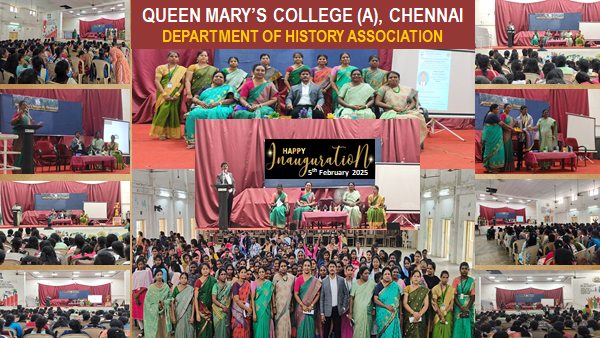
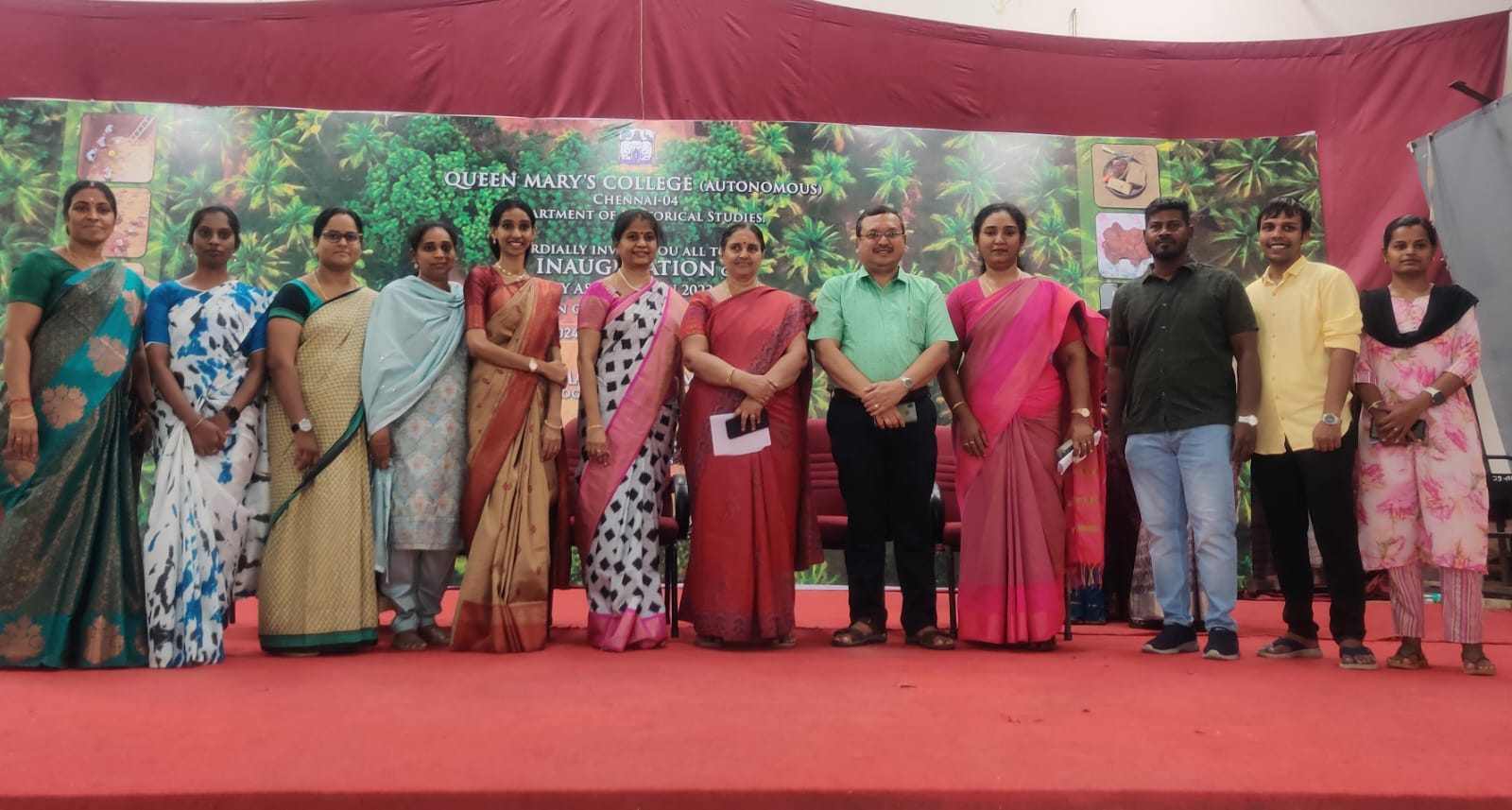
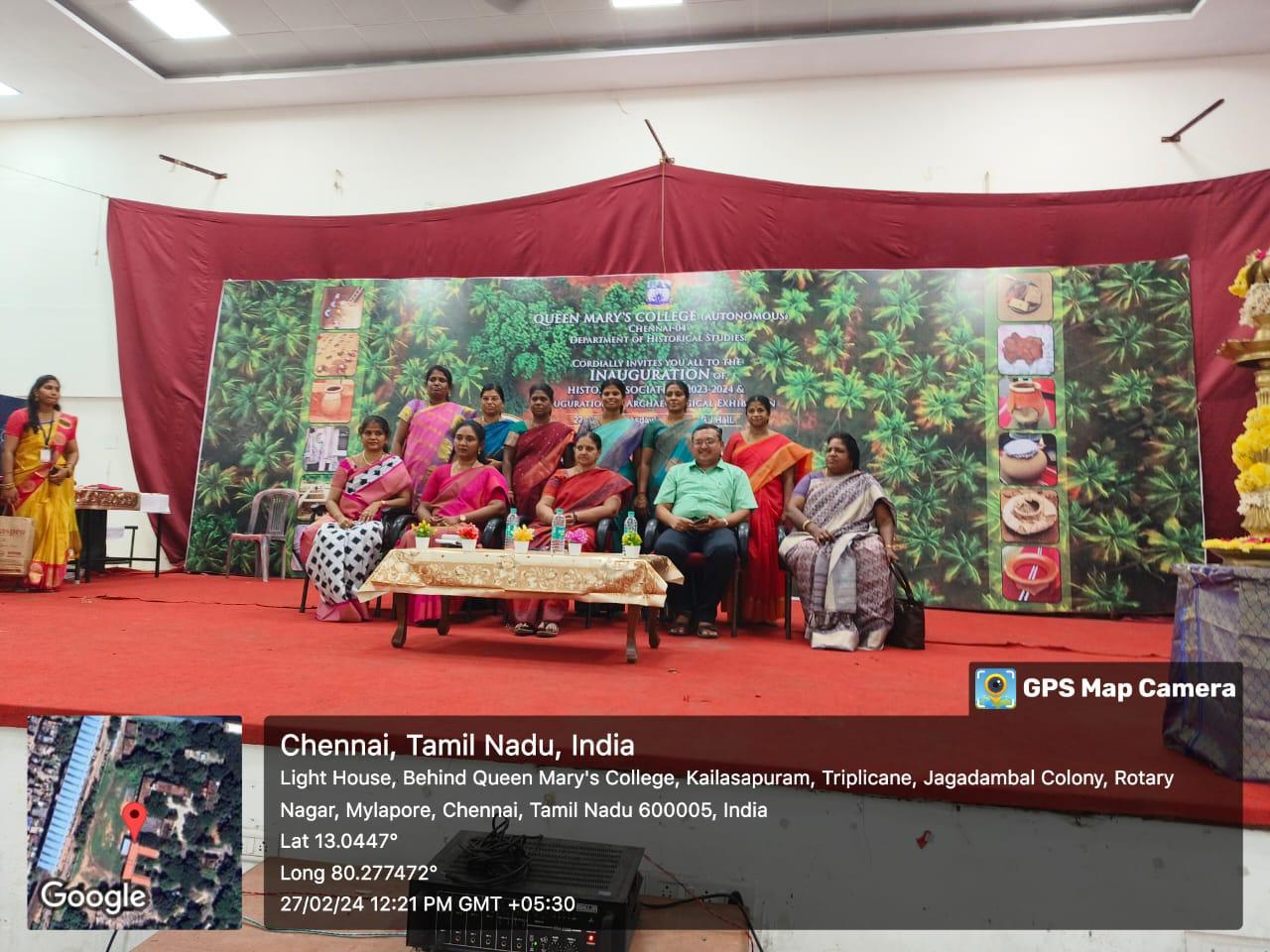
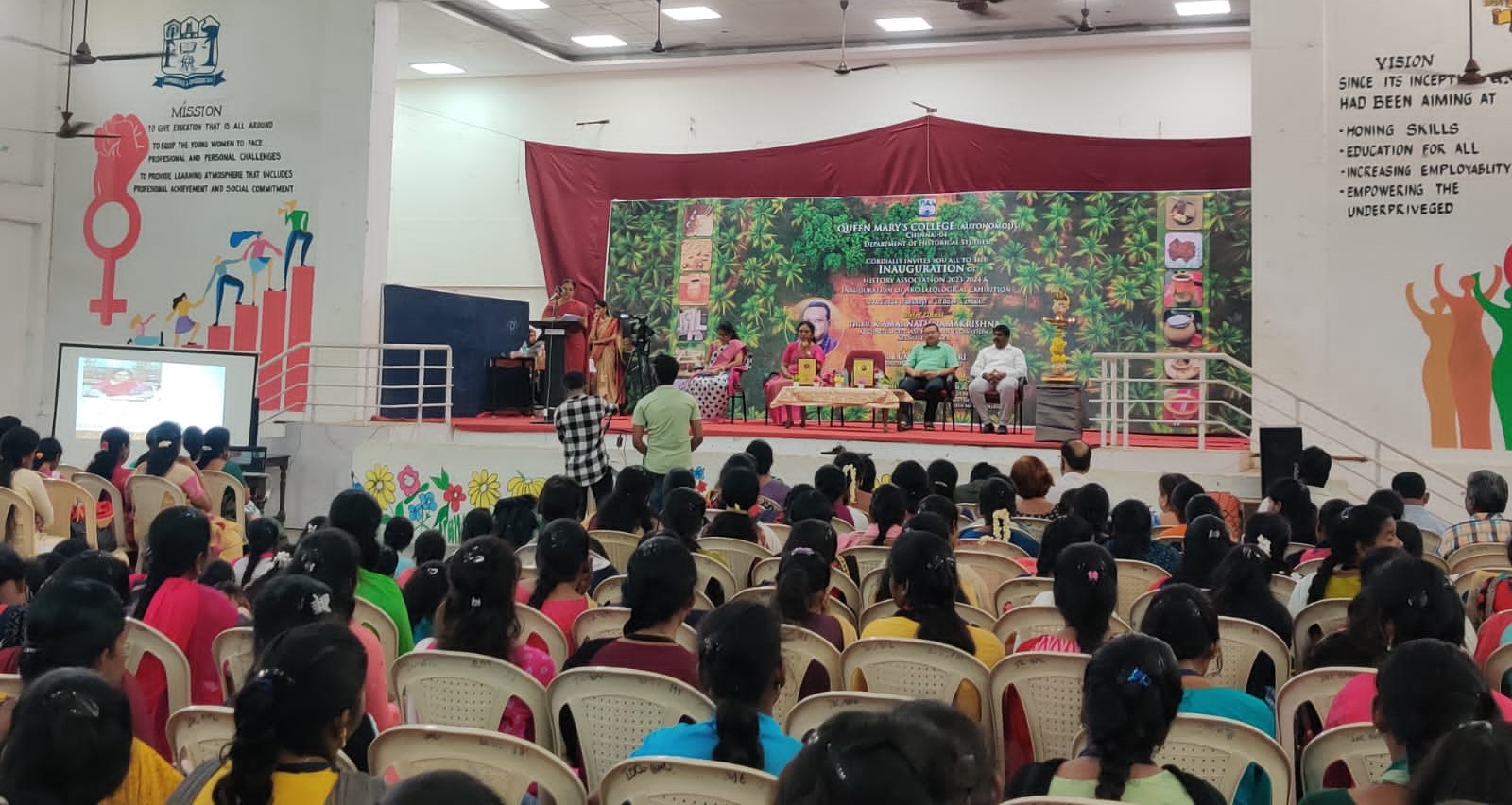
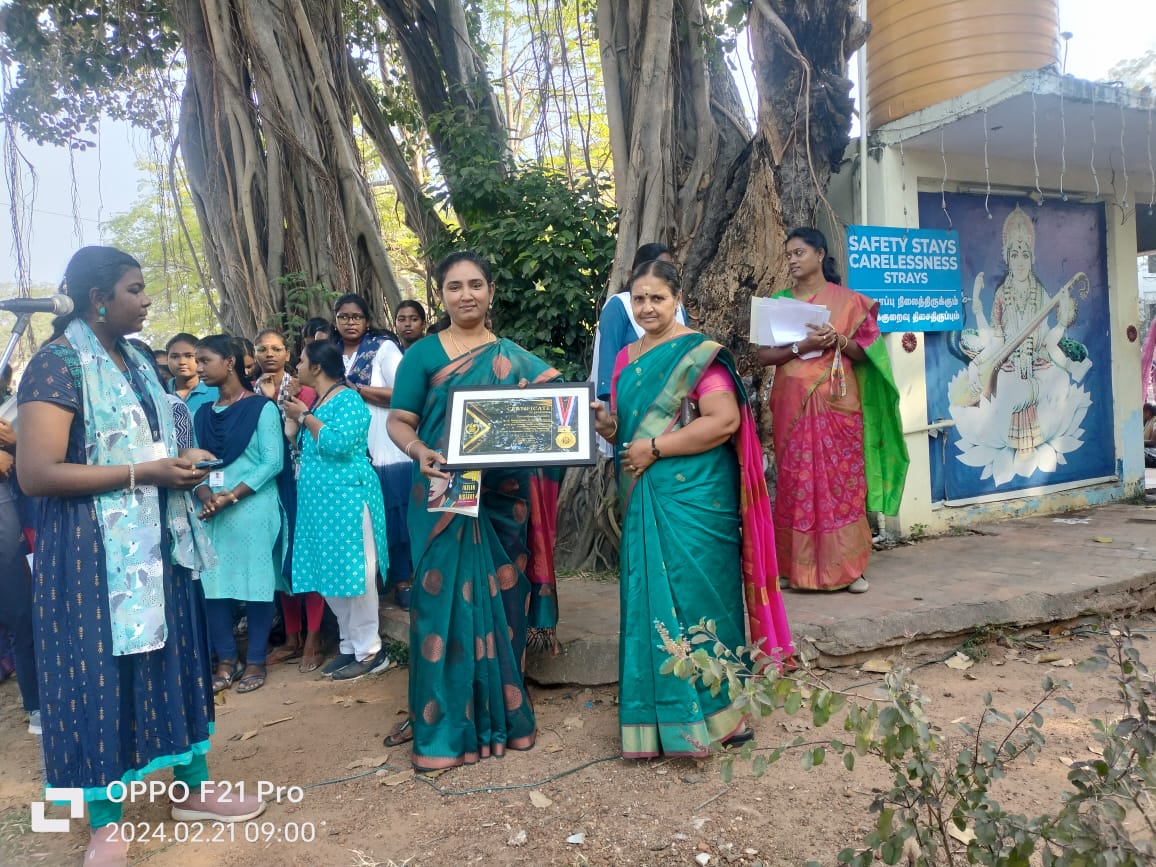
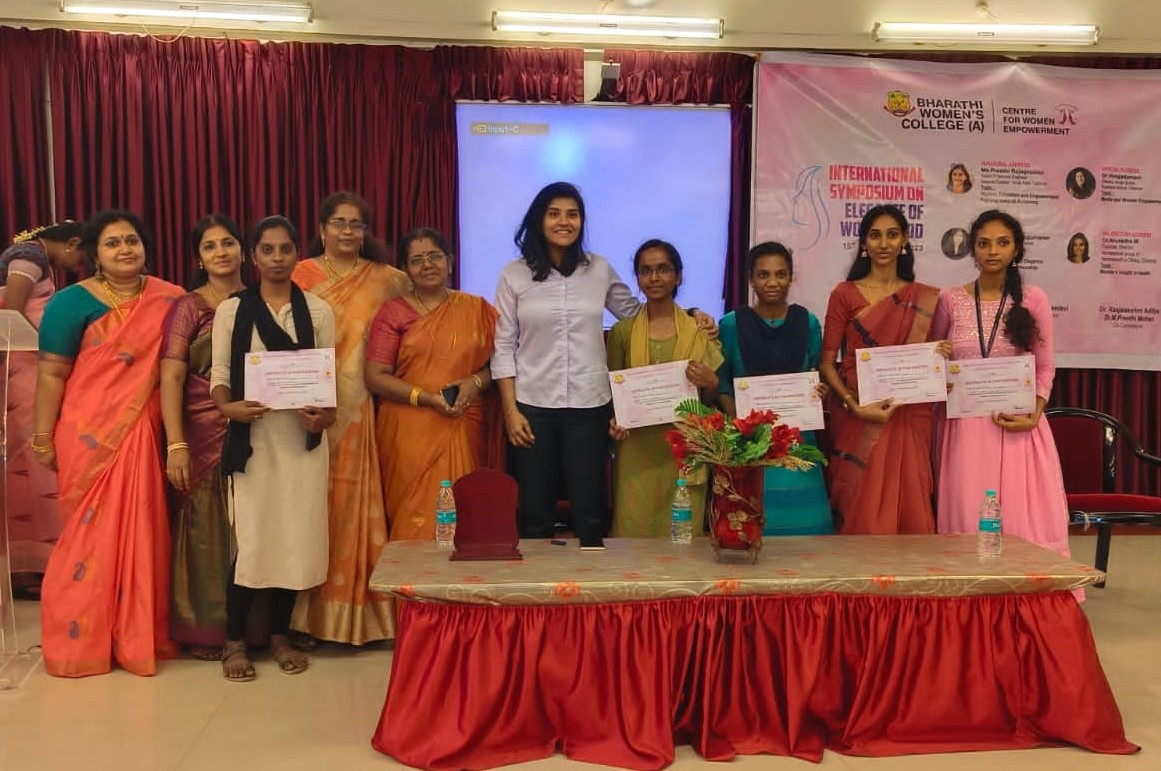
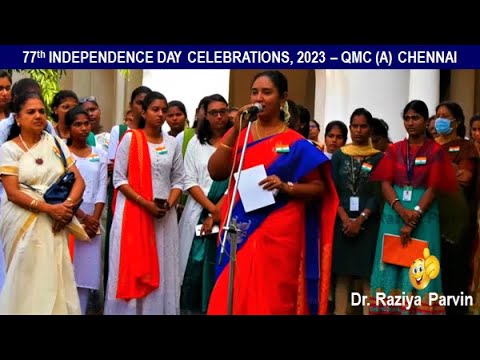
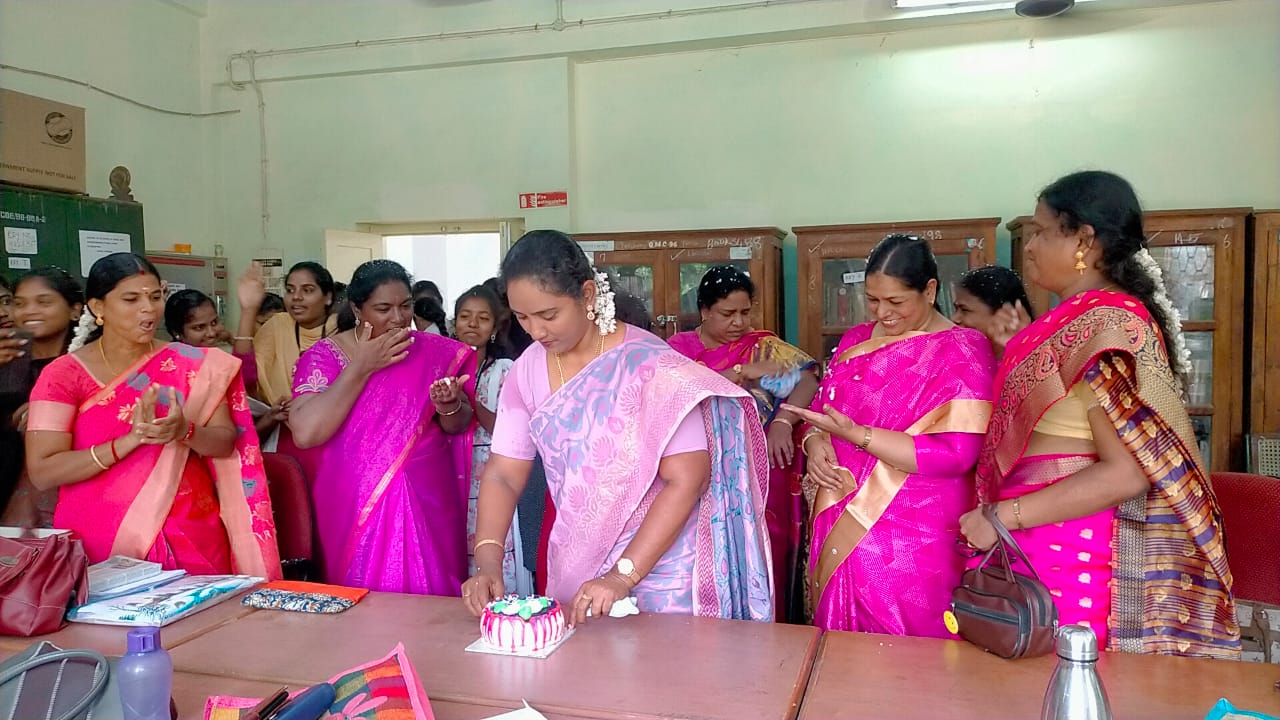
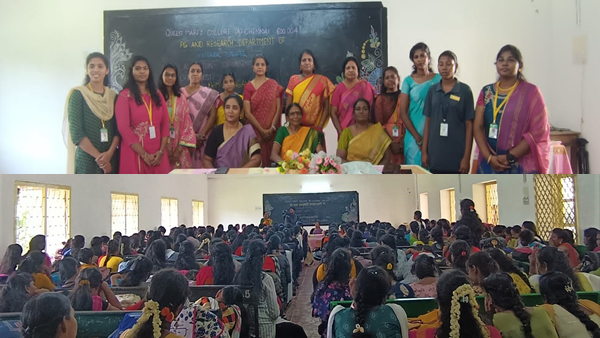
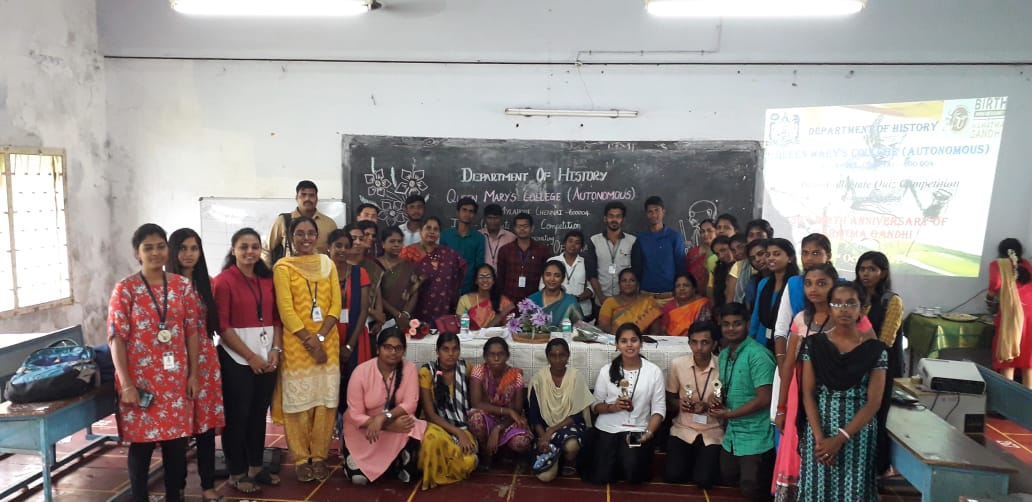
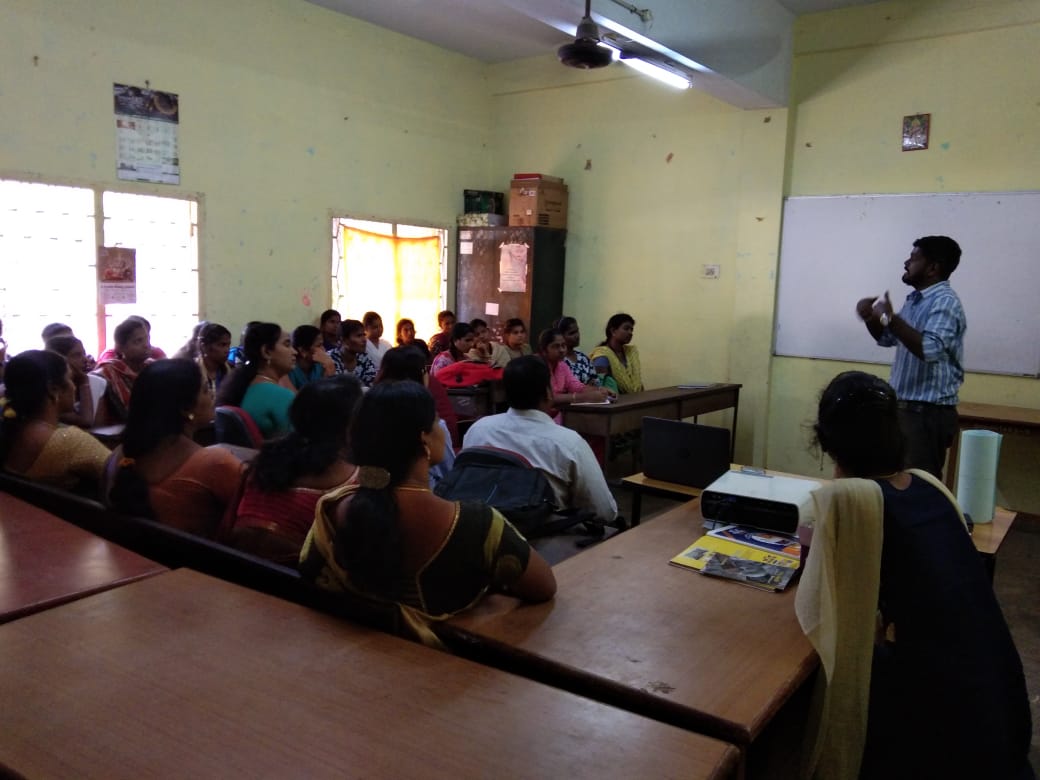
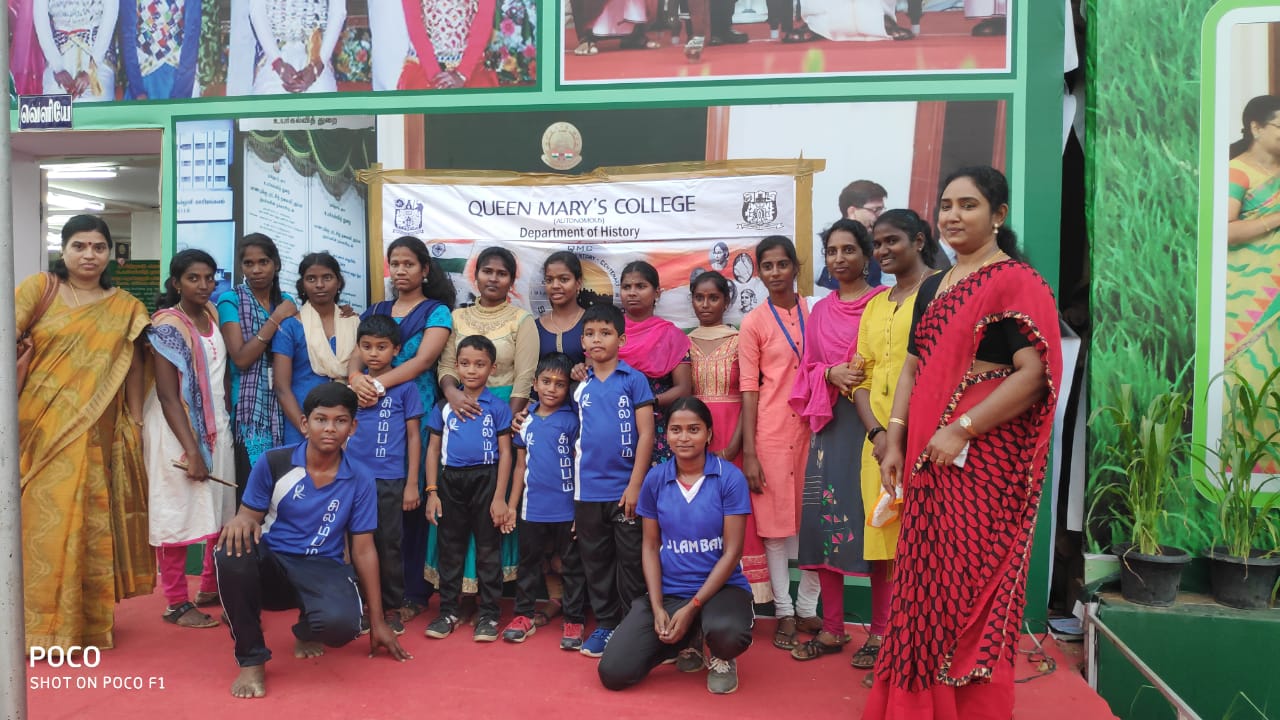
.jpg)